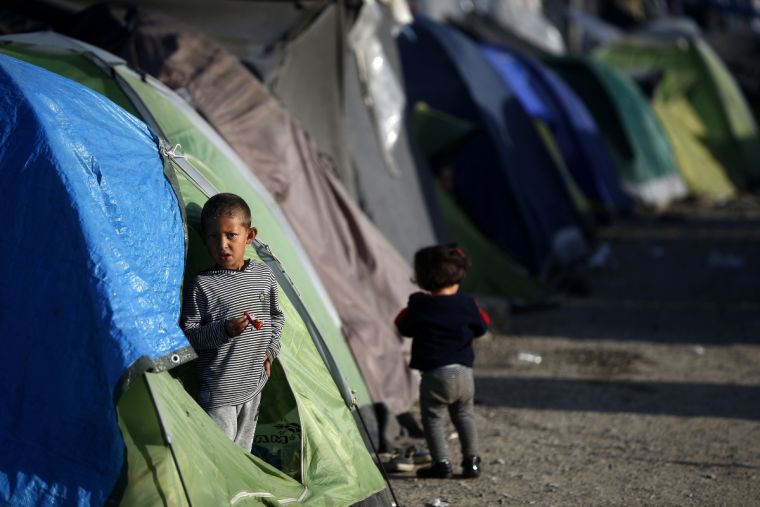The Inspirational Christian Couple Who Have Opened Their Home To Refugee Children

Many of us have been moved by the refugee crisis but few have taken action on the scale of a Christian couple in the north of England. The couple, who can't be named because of the sensitive nature of their work, have gone above and beyond the call of duty to make sure unaccompanied children receive the love, respect and dignity they deserve when they arrive in the UK.
I first knew this couple as foster and adoptive parents who helped advise Home for Good when we got started as a charity. When the refugee crisis hit they volunteered to help on the beaches of Lesbos, offering first-hand assistance and deploying their skills as trained social workers with years of cross-cultural experience. But as it become apparent that many children had made their own way out of the squalor of the 'Jungle' camp in Calais into the UK, this couple thought there was more they could do at home.
After the passing of the Immigration Act earlier this year, unaccompanied asylum-seeking children who first arrive in Dover or emerge from the backs of lorries in the south of the England no longer have to be looked after by the local authority they arrive in. Local authorities around the UK can agree to receive these children to help take the pressure off places like Kent and Croydon, where unprecedented numbers of refugee children are arriving. It has been encouraging to see local authorities working in partnership to make sure that the whole UK plays its part in helping in this humanitarian crisis.
So despite living nowhere near the south coast, this couple opened their home not only to receive some children, but to become an assessment centre for many unaccompanied children. This means that rather than going into an impersonal institution, the first experience these refugee children have of the UK is a warm, loving, family environment. This has called for some innovative practice and thanks to a forward-looking local authority, they have successfully become the first centre of this kind that we know of.
With the impending demolition of the 'Jungle' camp, many groups, including Home for Good, have been calling on the government to welcome vulnerable refugee children to the UK. If the government responds to this call we are going to need foster carers who can help. At the moment these will need to be already trained and approved carers, but more carers are needed. More are needed to look after children already in the UK as well as to look after children who may yet come to us from trouble spots around the world.
I asked the couple from their experience of looking after children from the camps, what advice they would give to carers:
1. Initialy – certainly for the first week – the main aim should be simply to encourage the young person to feel safe. This is achieved with a warm room, smiles and a friendly tone, regular meals (halal if appropriate) and provision of suitable clothing.
2. Don't ask the young person to 'tell their story' to you, and discourage others from doing so too. This is likely to increase their degree of sadness/trauma, rather than diminish it. They will tell you what they want to when they want to, but be aware that they are likely to have experienced some extreme trauma, dislocation and loss.
3. Try to meet at least one of the young person's needs (as they see them), such as arranging language lessons or football sessions, within the first week as this will encourage them to have confidence in you and to feel that they are 'getting somewhere' after their lengthy time of journeying and waiting.
4. Be aware of the risk of traffickers contacting the young people via phones. Follow your social worker's advice regarding the use of phones, but be aware that if the young people have mobiles, they also provide an important link with their own 'support system' of young people in similar situations who they may have become very close to.
5. Try to establish a regular routine which the young person fully participates in by the end of about the second week. This helps them to get up at a regular time each day, eat meals with others and hopefully establish a good sleep pattern.
6. We have found LanguageLine is a great asset in aiding communication (maybe once or twice a week), but use of this will need to be agreed with your local authority
7. We have also found that play is really helpful and the presence of younger children in the placement here has been a great asset in helping the newly arrived ones relax and laugh while they play games etc.
8. Be aware of the emotional toll this may take on you. Accept practical offers of help from others (meals etc) and try to tap into your own support network.
Perhaps, inspired by this couple, you might want to get involved. Let Home for Good know if you are an approved carer already and have availability to receive refugee children into your home, or if you would like to start the process to be a carer. If you are unable to foster yourself, why not encourage someone who does, or could? Not all of us will be able to turn our home into a refugee reception centre, but we can all play our part in this time of great need.
Dr Krish Kandiah is a theologian, author and the founding director of Home for Good, a charity seeking to find loving homes for children in the care system. Follow him on Twitter @krishk.











